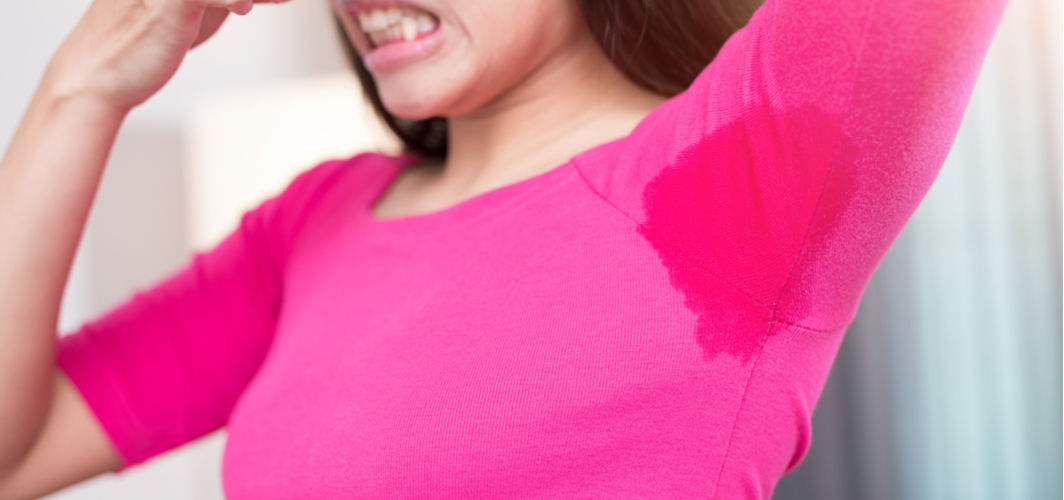General Health
5 Tips to Get Rid of Body Odour This Summer
3 min read
By Apollo 24|7, Published on - 31 March 2022, Updated on - 20 December 2022
Share this article
0
20 likes

Body odour is a common problem that can affect anyone. However, the problem peaks during the summer season when our bodies start sweating in response to the hot and humid weather conditions. Contrary to popular belief, sweating by itself doesn’t cause body odour as human sweat is odourless. When the bacteria on the skin break down the protein molecules in sweat, the body emits a foul odour. Body odour can occur due to poor personal hygiene, diet, and in rare cases, some medical conditions. The article explores ways to get rid of body odour in detail below.
1. Maintain Personal Hygiene
It is important to shower at least once a day. Bathing with an antibacterial soap will help you wash away sweat and odour-producing bacteria present on the skin. It is important to pay special attention to areas more prone to sweating such as the feet, armpits, and groin. Ensure you dry these areas thoroughly after washing as it’s difficult for bacteria to grow on dry skin.
2. Use an Antiperspirant
Once you have bathed, use a strong antiperspirant. It will help you lower the intensity of body odour by inhibiting the growth and activity of odour-producing bacteria. Most antiperspirants contain aluminium chloride, a chemical that is known to be effective against sweat. People who sweat a lot can use antiperspirant twice a day - in the morning and evening. Do not forget to do a patch test before using any new product.
3. Change Clothes Regularly
People who sweat a lot should change their clothes frequently. Fresh clothes can help keep body odour at bay. While not all clothes need to be washed after every use, people who sweat excessively may need to wash their clothes more often. Since feet are more prone to sweating, consider changing socks regularly. People with sweaty feet should replace the soles of their shoes frequently and walk barefoot as much as possible.
4. Wear Natural Fabrics
The fabric of clothes you wear can affect how you smell. According to studies, artificial fabrics such as polyester and spandex can help foster the growth of odour-producing bacteria on the skin. On the other hand, natural fabrics such as cotton, linen, and wool may help reduce the buildup of bacteria by facilitating the evaporation of sweat.
5. Reduce Intake of Certain Foods
The foods you eat can affect your body's odour. Caffeinated and alcoholic beverages make you sweat more, which can lead to body odour. Foods rich in sulfur such as onions, broccoli, garlic, and cabbage can also impact your body's odour adversely. Consuming citrus fruits such as lemon and orange, and probiotic foods such as yoghurt can help improve your body’s odour.
Takeaway
The scorching heat during the summer season makes us sweat heavily, resulting in a bad body odour. To get rid of this socially embarrassing situation, one can follow the aforementioned measures and curb body odour. However, people who have an intense body odour that refuses to go away should consult a physician. In some cases, body odour and heavy sweating may be signs of an underlying medical problem.
Need medical advice?
General Health
Leave Comment
Recommended for you

General Health
From Surgery To Antibiotics, Know Everything About Appendicitis Treatment
Appendicitis is a condition where the appendix becomes infected or inflamed and requires prompt medical attention. Treatment options include surgery, antibiotics and pain management. Early detection of appendicitis is crucial for successful treatment.

General Health
Can High BP Cause Brain Damage? Everything You Need to Know
Unknown to many, high blood pressure is the single biggest risk factor for stroke. The article explains the link between high blood pressure and stroke in detail.

General Health
Methylcobalamin Injection: Strategies for Effectively Managing Vitamin B12 Deficiency
Explore how to effectively manage and treat vitamin B12 deficiency through diet, supplements (methylcobalamin injection) and lifestyle changes.
Subscribe
Sign up for our free Health Library Daily Newsletter
Get doctor-approved health tips, news, and more.
Visual Stories

Plant-based Foods That Are a Great Source of Iron
Tap to continue exploring
Recommended for you

General Health
From Surgery To Antibiotics, Know Everything About Appendicitis Treatment
Appendicitis is a condition where the appendix becomes infected or inflamed and requires prompt medical attention. Treatment options include surgery, antibiotics and pain management. Early detection of appendicitis is crucial for successful treatment.

General Health
Can High BP Cause Brain Damage? Everything You Need to Know
Unknown to many, high blood pressure is the single biggest risk factor for stroke. The article explains the link between high blood pressure and stroke in detail.

General Health
Methylcobalamin Injection: Strategies for Effectively Managing Vitamin B12 Deficiency
Explore how to effectively manage and treat vitamin B12 deficiency through diet, supplements (methylcobalamin injection) and lifestyle changes.